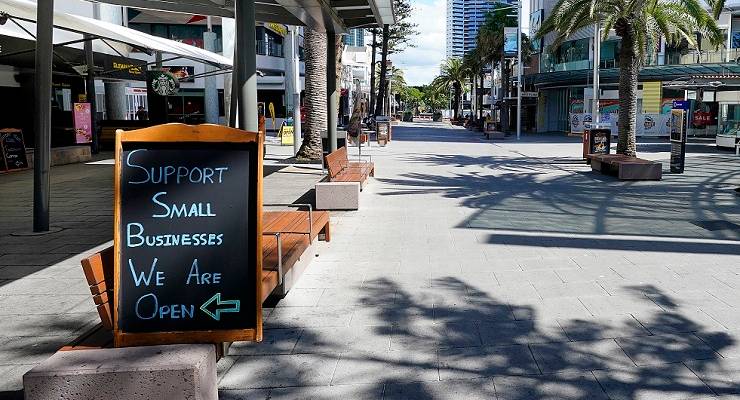
Leading economist and prominent Tasmanian Saul Eslake has prepared a paper on tax reform in the Apple Isle at the request of The Australia Institute’s Tasmanian branch.
Eslake’s paper contains many of the kind of recommendations you’d expect. He notes Tasmania relies heavily on what are regarded as “bad taxes” — stamp duty, insurance levies — and less so on “good taxes” that carry less economic burden — payroll tax (Eslake gets cranky at traditional claims payroll taxes are “taxes on jobs”) and land tax.
Like many other economists, he urges a swap between stamp duty and land tax, with transitional provisions to prevent double taxation of those who’ve recently bought a property. He also wants an expansion in payroll tax by lowering the current threshold, and proposes the return of an estate tax on properties over $1 million (but with deductions available for charitable and not-for-profit donations).
All good stuff — albeit unpalatable for more timid politicians. But Eslake also returns to a favourite theme, or should that be a sacred cow. Eslake is that rare thing in Australian public discourse: someone who refuses to kneel at the altar of small business. And the paper gives him a chance to once again make the point that small business is, by and large, overrated when it comes to jobs and innovation.
Exemptions from payroll tax for small business would be justified, he says, if they were indeed the engines of job creation they’re usually portrayed as. In fact, in Tasmania the proportion of private sector employment in small business has fallen even faster than it has Australia-wide over the past decade: between 2007 and 2019 it fell by 10.2% compared with 9.9% nationally. As Eslake writes:
Employment at Tasmanian small businesses has actually shrunk over the past 12 years … By contrast, employment at medium-sized enterprises (those with between five and 199 employees) in Tasmania grew by 43.8% over the 12 years to June 2019, while employment at large enterprises (those with 200 or more employees) grew by 39.3% — despite these firms paying the second-highest rate of payroll tax in Australia.
He also notes that small businesses are less innovative than larger ones — but they’re better at avoiding tax. Australian Tax Office data shows “small businesses accounted for almost exactly half of the ‘tax gap’ (or difference) between the amount of (personal plus company) income tax which would notionally have been collected if there had been ‘full compliance’ with taxation laws, and the amount which was actually collected”.
Small business tax avoidance, he says, cost the federal government $11 billion in 2015-16, compared with about $2 billion from “non-compliance” by large corporate groups, and $703 million by high net worth individuals.
Small business, many claim, is not merely the engine room of the economy but the backbone of the nation — indeed Australia is, according to some, a “small business nation”. Not according to one heretic, however.








Can someone please send Eslake’s paper to the Federal Treasurer.
One of the ‘best’ things about being in a small business is the amount of what would normally be considered personal discretional expenditure that can be syphoned into the ‘business expenses’ category.
The downside is that you often have to deal with inefficient other ‘small-to-medium’ enterprises which are run by people who should find something else to do more in line with their lack of ordered and rational thinking.
I have seen so many potentially successful business concepts fail simply because other businesses on which they necessarily depend are unreliable and lacking in acumen..
Been saying for years that small business is not the great saviour and never has been. Most of them fail, something like 80% in the first year. It’s tough, and most people don’t have the wherewithal to make a success of it.
But as folly points out, those that do have wonderful ways of writing off daily expenses as business expenses, legitimately, and many make much more claims that their accountants claim are fine which I suspect are most likely not.
Of course the biggest area of tax leakage is small business, along with multinational businesses, for whom paying tax is optional.
Rolly not folly, not dolly, not boldly. Piss off spell check.
Tax is a business overhead- so reducing the overheads is the aim of all businesses. Unfortunately the 4 volumes of the Tax Act [largest in the western world] is beyond the capacity of the ordinary business- so the real small to medium businesses do what they can to survive- analysis by one of the ex big 3 accounting firm partner [Saul] does not comprehend what real business is.
if a “small” business is defined as less than 4 employees, wouldn’t job growth in a small company fairly quickly get it rated as a medium business?
what then happens to those numbers? A simplistic survey would show a decline in jobs in the small category, and growth in the medium column. Are we sure this “bracket creep” isn’t happening and skewing the count?